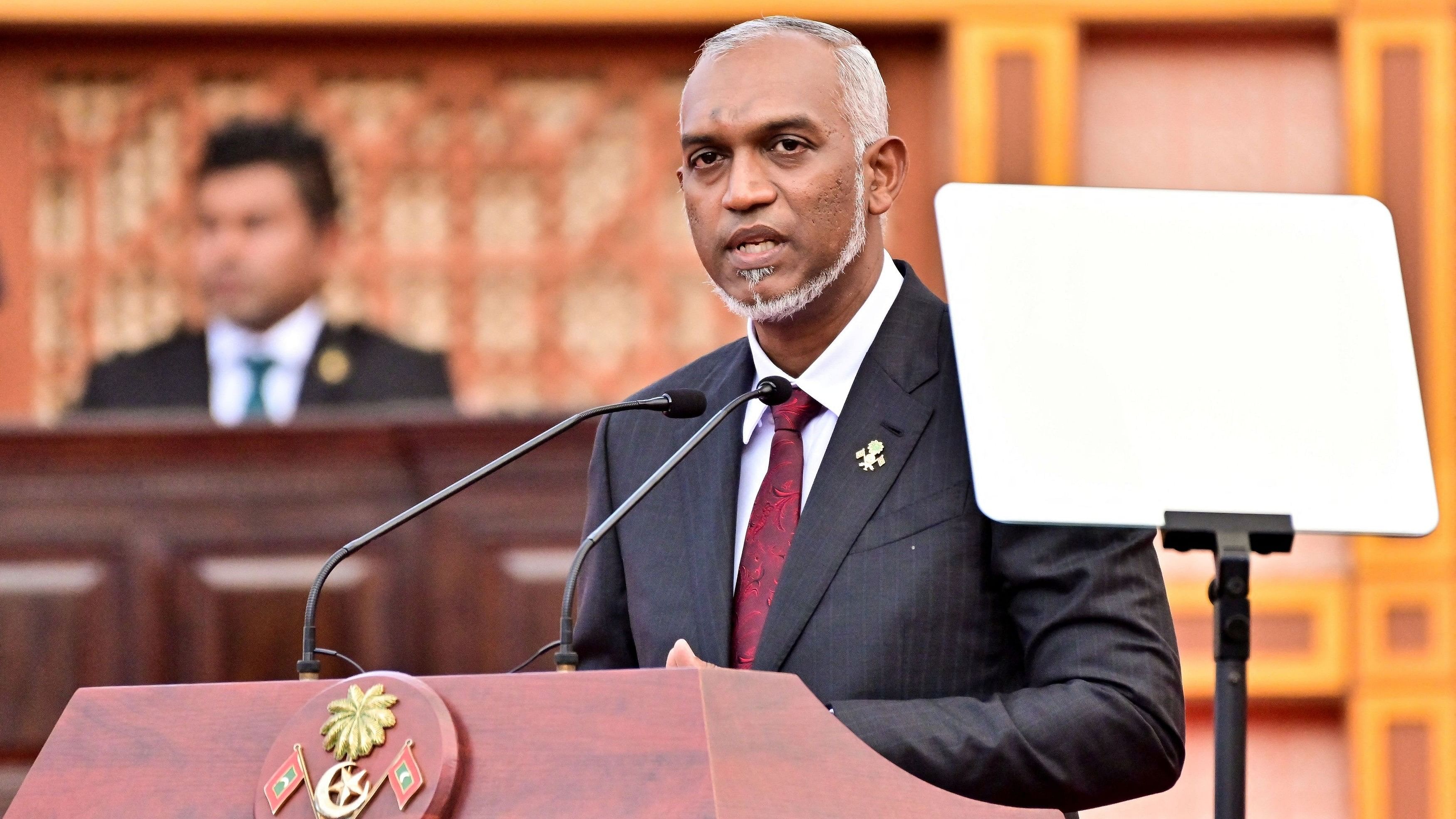
Mohamed Muizzu, the newly elected president of Maldives.
Credit: Reuters Photo
The Maldives’ new President Mohamed Muizzu’s ‘request’ to Delhi to remove all Indian armed forces personnel from the Indian Ocean archipelago did not come as a surprise. For two years preceding his election, Muizzu’s political mentor and former President Abdulla Yameen had led a ‘India Out’ campaign. It was known that Muizzu would continue the China-leaning Yameen’s path on the issue. His predecessor Ibrahim Solih did not do himself, or India, any favour by carrying his ‘India First’ policy to an extreme by criminalising anti-India protests on grounds of national security. The ‘India Out’ campaign seems to have appealed to Maldivians, who have now elected a leader who is not as enthralled by India.
The tensions are centred on the presence of over 70 Indian military personnel in the Maldives for the maintenance of two helicopters and a Dornier aircraft gifted by India, and a 100 or so agreements on defence cooperation, including training the police and building a Maldives Coast Guard base. But other elements of the relationship cannot remain insulated. India is executing big infrastructure projects, including building housing and the Greater Male Connectivity Project. As Maldives' closest neighbour, which is also the nearest big economy, India has inevitably been the first responder in any crisis or emergency, from the 1988 attempted coup to the 2004 tsunami, the 2014 water crisis in Male, and the Covid pandemic. People-to-people ties are robust. Students from the Maldives seek admission in Indian universities. Maldivians seek treatment in hospitals in Mumbai, Chennai and Delhi. A large number of expatriate Indian professionals are employed in various capacities, including in the hospitality industry. Indian tourists have been flocking to the Maldives and, by their sheer numbers, given the country's mainstay tourism industry a leg up after the pandemic.
As an astute politician who cautiously plotted his way to the top job, Muizzu may already know that disturbing this applecart can only be to the disadvantage of the Maldives. It is to be hoped that as the days go by and the pressure of making crowd-pleasing announcements eases, he will take a more nuanced view of the relationship with India. For its part, Delhi should not take an all or nothing view, and make all attempts to negotiate new terms with Muizzu. But India must also make clear to Male that while Delhi understands that it will seek to leverage its strategic geography and good relations with China to get the best deal for itself, it cannot ignore Delhi's security concerns. India has a clear and present military situation with an aggressive China in Ladakh and in the North-East, and Delhi is bound to ensure the security of its other flanks. As long as there is clarity on this, everything else is diplomacy.